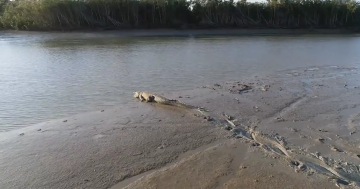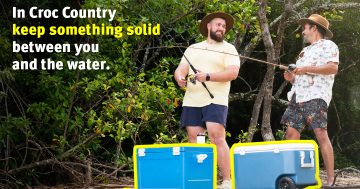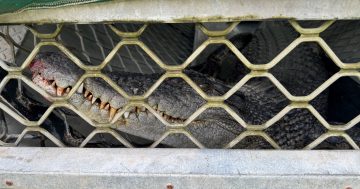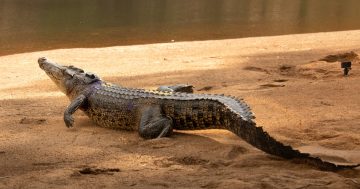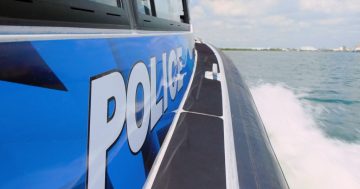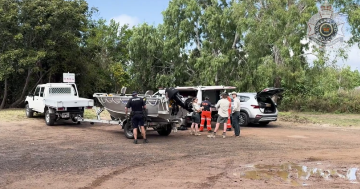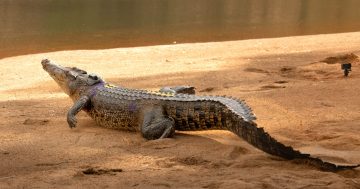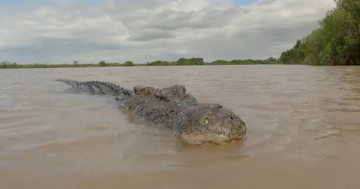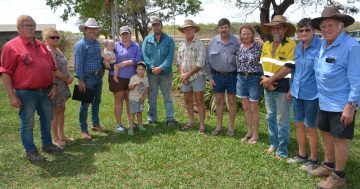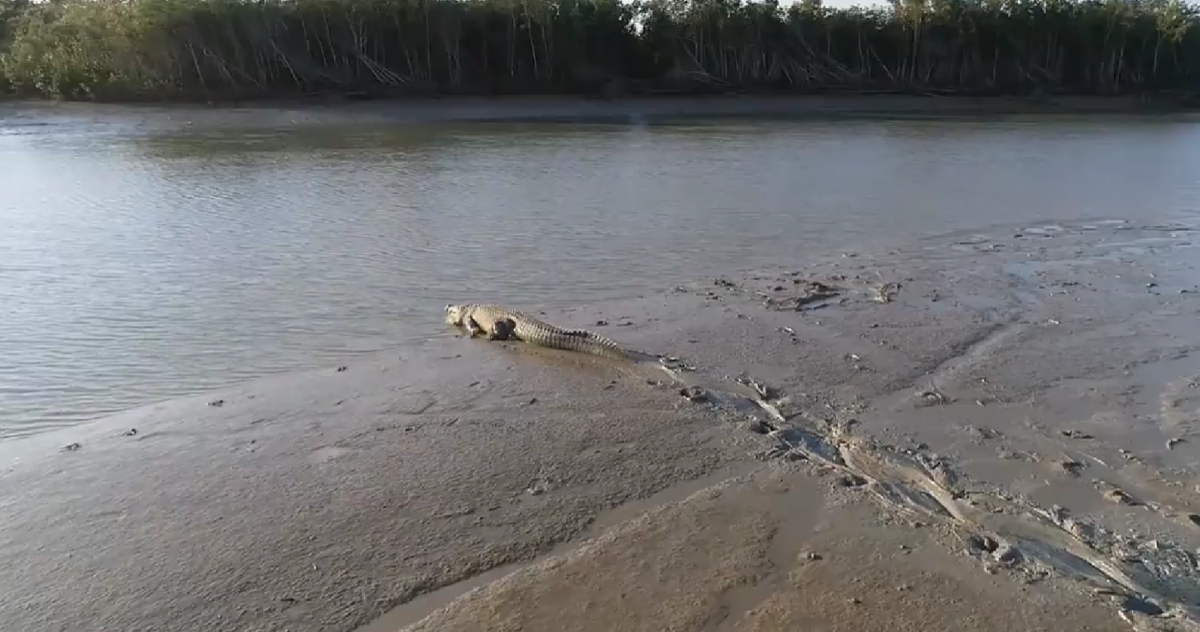
University of Canberra researchers believe a new program testing environmental DNA could change how saltwater crocodiles are monitored and managed, potentially improving public safety. Photo: Supplied.
While the Be Crocwise message remains, a new research program could help change the management of Cape York’s saltwater crocodiles and help improve public safety.
The Department of Environment, Science and Innovation (DESI) is supporting the project being undertaken by University of Canberra (UC), which leads environmental DNA (eDNA) research in the country.
Researchers from the university have mapped regions of the crocodile’s mitochondrial DNA using samples collected from animals throughout Queensland, the Northern Territory and Western Australia.
Those samples have then been used to develop research to develop a technique that can specifically detect minute amounts of a crocodile’s mitochondrial DNA in water samples.
DESI program co-ordinator Simon Booth said wildlife officers from the Queensland Parks and Wildlife Service hoped the eDNA research would provide a valuable technique for detecting crocodiles in waterways without having to see them.
A recent long-range genetic study of Queensland’s saltwater crocodiles showed about 40 per cent of the total non-hatchling population was found in north-western part Cape York.
“Occasionally, wildlife officers respond to a crocodile sighting report and our conventional methods such as land or vessel-based surveys don’t confirm the presence of a crocodile,” Mr Booth said.
“This program is in the preliminary phase, but if the research program is successful, wildlife officers could take water samples to detect crocodiles in waterways that are hard to access, or areas the public use regularly such as swimming holes.
“Investigations into the eDNA detection are expected to continue for the next 12 months, but initial results are promising.”
UC researchers Dr Peta Hill and Dr Elise Furlan said eDNA surveys relied on detecting a species from trace amounts of DNA shed into the environment through sloughed skin cells, faeces or urine.
“We conducted trials to detect DNA in water samples collected from crocodile holding ponds at the DESI facility in Cairns, and compared them with control samples of water,” Dr Hill said.
“We will use these trials to confirm estuarine crocodiles having been present in those ponds.
Dr Furlan said water samples would continue to be collected once the crocodile had been removed from the pond to “investigate DNA degradation over time”.
Mr Booth said while the research’s potential was exciting, people needed to maintain vigilance in northern waterways and be responsible for their own safety.
“People are responsible for their own safety in croc country, but eDNA testing could assist us in managing crocodiles in Queensland and across the country.”


